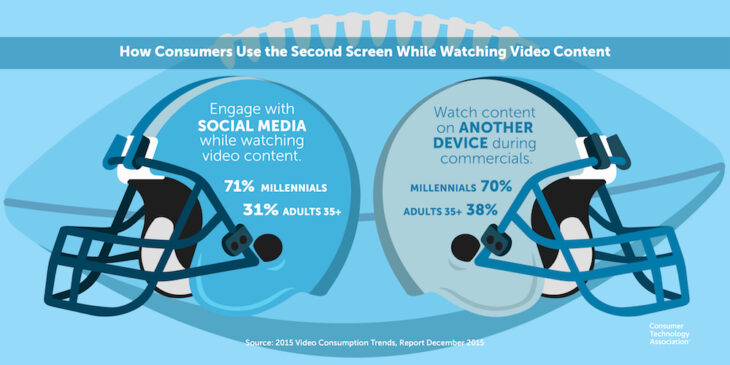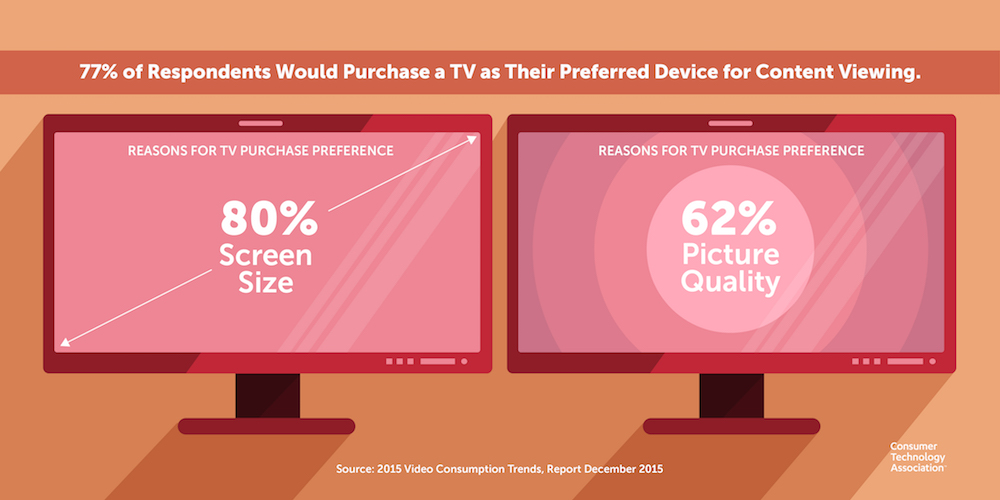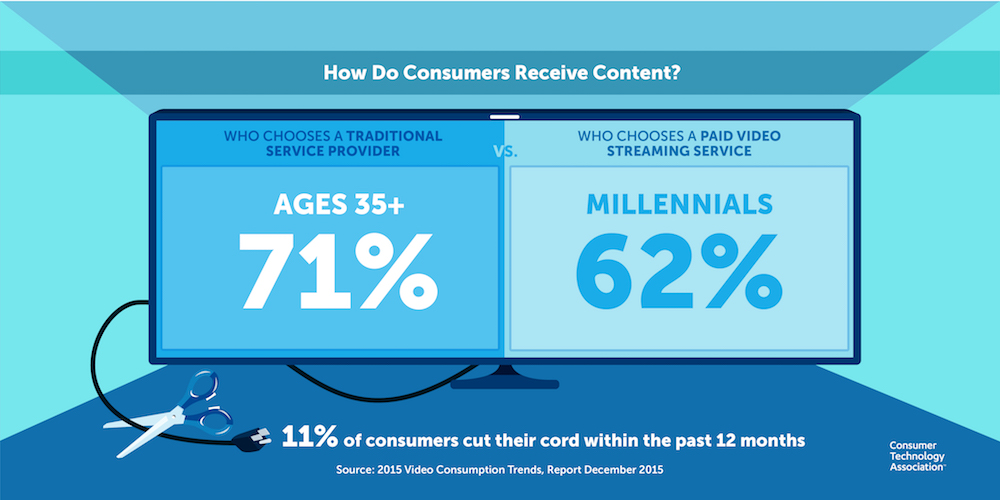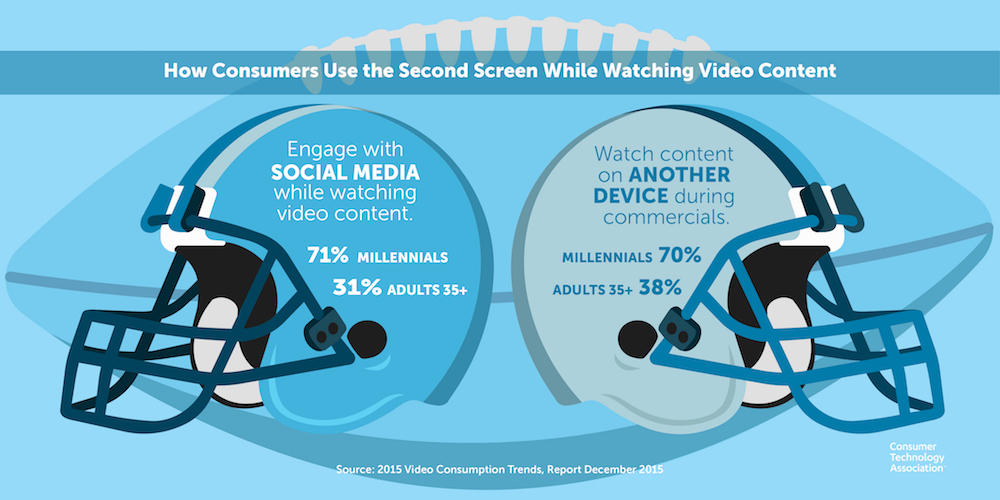Podcast: Play in new window | Embed
I bet your TV isn’t the only screen you’ll be using during “The Big Game” this Sunday. Lexie de los Santos with the Consumer Technology Association explains in this week’s “CTA Update”.
CTA’s new report on Video Consumption Trends found that nine in ten millennials use a second screen when watching video content. That includes smartphones and tablets; to access information about the content they’re viewing, watch something else during commercials and follow social media discussions.
And, one in ten consumers report having “cut-the-cord” on their service provider subscription in the past year. While computers, tablets, and smartphones are popular for watching streamed content; TVs remain the most-preferred devices for video content due to their screen-size and picture quality.
CTA projects revenues for TV sets and displays will reach $19 billion in 2016, driven in part by the introduction of 4K Ultra High-Definition TVs.
To learn more visit cta.tech/research.
Listener Jim in Delaware listening on NewsTalk WXDE 105.9 FM asked us about using a hotspot abroad
Jim asked: Personal hotspots. Wondering if you can use them outside of the US. I recently traveled to Grand Cayman and didn’t have Internet service and was wondering how that works.
It depends on your particular carrier and there is a chance that if you have data roaming you may be able to use it, but you should really think about those roaming charges. Computers tend to use up a lot more data than mobile devices, full websites usually show more ads, more pictures, more elements at the same time, and it all adds up very quickly.
Typically, tethering data goes through different servers than data used just by the phone, so don’t expect your hotspot will work, in fact it’s more likely that it won’t, but ask your carrier about it and ask what the charges would be for Grand Cayman in particular, as they may change from one roaming destination to another. Just remember, if you don’t check beforehand, you may end up spending a lot of money on data roaming charges.
Just remember, if you don’t check beforehand, you may end up spending a lot of money on data roaming charges.
The important thing to remember is that a “personal hotspot” isn’t some magic talisman that makes Internet access out of nothing. It uses the same network and provider as your smartphone, or at least the same kind of network and provider.
So if your smartphone has no Internet service, chances are that your personal hotspot wouldn’t either. Also, before you invest in a separate device for this task, keep in mind that most current generation smartphones have a hotspot feature built into them. Save yourself a few dollars to help pay for that bigger data plan.





